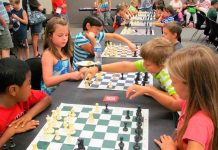Created by KEV
Муниципальное автономное общеобразовательное учреждение
«Лицей города Троицка»
Внутришкольный контроль
Проверочная работа по английскому языку
«Настоящее простое время»
5 класс
Камелавкина Елена Викторовна
учитель английского языка
МАОУ «Лицей города Троицка»
г. Троицк
2012
Test. The Present Simple.
The 1st variant.
1. Open the brackets.
-
She seldom (to go) for a walk.
-
David (not to wear) dresses.
-
Mary (to like) jeans.
-
My father usually (watch) TV in the evening.
-
We seldom (to do) our homework.
-
They often (to play) football)
-
She usually (to play) snowballs in the yard.
-
Mary rarely (go) for a walk.
-
Jack sometimes (to wear) jeans.
-
John never (to help) about the house.
2. Fill in DO or DOES.
-
… he eat porridge for breakfast?
-
… your mother cook fish?
-
… they sometimes go to the theatre?
-
… it rain in Moscow?
-
… he often clean the car?
-
… you often have tests at school?
-
… he drive well?
-
… we learn the words by heart?
-
… she know me?
-
… we watch TV every day?
3. Make up sentences from the words.
-
Likes, golf, my elder brother, to play.
-
Usually, have supper, at 8 o’clock, we.
-
Doesn’t, to clean, like, my father, the car.
-
Fish, I, in the lake, in summer.
-
Go, every spring, to Italy, my parents.
-
Never, eats, my father, fruit.
-
Reads, his grandfather, every evening, magazines.
4. Write as in the example.
E.g.: He goes to school every day. – Does he go to school every day? – He doesn’t go to school every day.
-
He drinks tea with lemon.
-
She likes to play with dolls.
-
Den washes his hands every day.
-
Alice often does her homework.
-
Nastya sometimes sleeps at breaks.
Test. The Present Simple.
The 2nd variant.
1. Open the brackets.
-
Fred (to like) to read books at noon.
-
His father (to go) shopping on Saturday.
-
He often (to try) to be good.
-
He (not to make) his bed at 5.
-
We (not to like) to play leap-frog.
-
I (not to come) home at seven o’clock.
-
Nastya (take) a shower in the evening.
-
Khristina (not to read) books at midnight.
-
Kirill (to be) a clever boy.
-
We (to sleep) every day.
2. Fill in DO or DOES.
-
… you like to dance?
-
… they smoke?
-
… it rain in England?
-
… your father read newspapers?
-
… he want to be a killer?
-
… Timur go to school?
-
… Den and David help Nastya?
-
… you want to be a model?
-
… he sing songs at the lesson?
-
… it snow in August?
3. Make up sentences from the words.
-
Waters, my mother, the flowers, twice a week.
-
Likes, interesting, she, books, to read.
-
Don’t, on Christmas Day, go, they, to school.
-
Very much, work, my parents, like, their.
-
Goes, my elder sister, to the university.
-
In for sports, my, goes, friend.
-
Does, at school, he, his homework.
-
Always, help, we, each, other.
4. Write as in the example.
E.g.: He goes to school every day. – Does he go to school every day? – He doesn’t go to school every day.
-
He goes shopping with his parents.
-
Olga often writes dictations.
-
We play tennis.
-
I watch TV.
-
Mary plays badminton.
Answers.
|
The 2nd variant
| |
|
Task 1.
| |
|
|
|
Task 2.
| |
|
|
|
Task 3.
| |
|
|
|
Task 4.
| |
|
|
Использованные материалы:
-
Верещагина И.Н., Афанасьева О.В. Английский язык 4 класс (ч.2) – Учебник для 4 класса школ с углублённым изучением английского языка – М.: Просвещение, 2008
-
Гацкевич М.А. Грамматика английского языка для школьников: Сборник упражнений. Книга 1. – СПб.: КАРО, 2003.





